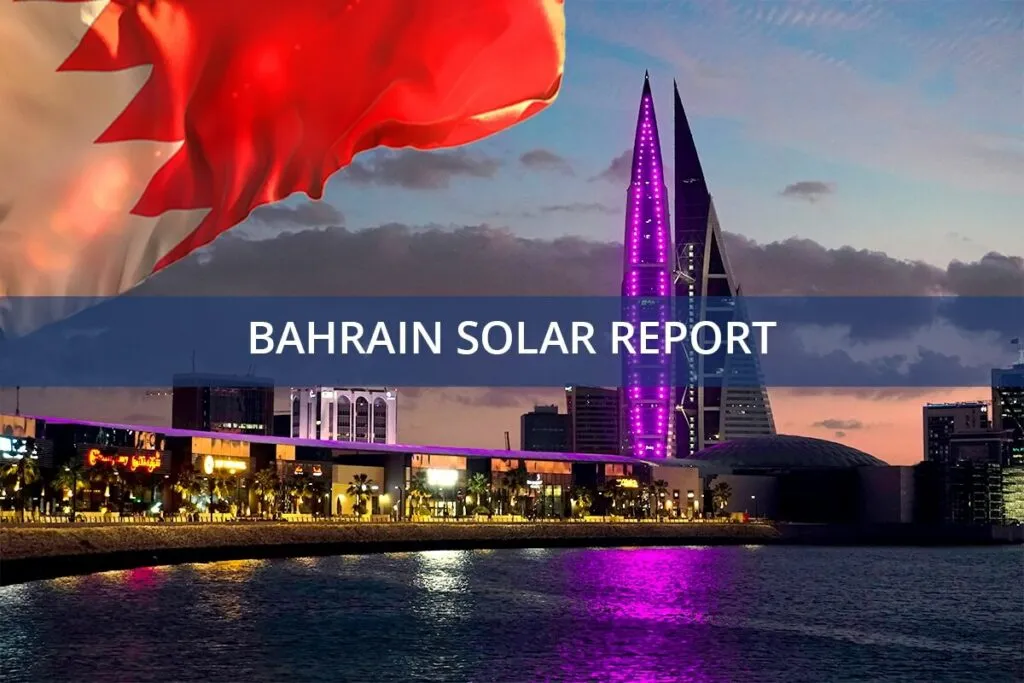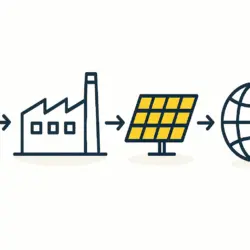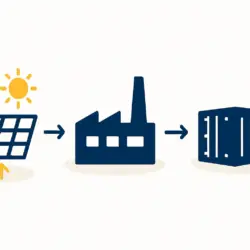Bahrain has advanced its renewable energy goals by closing bids for a 44 MW solar PV project at the Askar landfill, with tenders received from several major solar companies. This project is crucial in achieving the Kingdom’s target of 5% renewable energy in its energy mix by 2025.
Bahrain solar project: PV Project at Askar Landfill
Bahrain is making significant strides in its renewable energy ambitions, moving forward with a key solar initiative. The Kingdom has closed the bidding process for a 44 MW solar photovoltaic (PV) project, often referred to as the Sakhir solar project, located at the Askar landfill. This development is a critical step in Bahrain’s push to diversify its energy sources and reduce its reliance on fossil fuels, showcasing an innovative use of land for sustainable purposes.
According to a report by PV Magazine, Bahrain’s government is leasing the site to Bahrain Real Estate Investment (Edamah), the real estate arm of the Kingdom’s sovereign wealth fund. This strategic partnership underscores the project’s importance to Bahrain’s national strategy. The tender, which closed on January 28, 2024, attracted bids from several major international solar companies, including Sterling and Wilson Solar, TSK Electronica, TBEA, and Belectric. The involvement of these globally recognized firms, known for their expertise in large-scale solar installations, highlights the project’s international significance. Once completed, the Bahrain Advances 44 MW Sakhir Solar Project With Key Bids and is expected to significantly boost the nation’s renewable energy output.
Bahrain’s Renewable Energy Goals for the Bahrain solar project
The solar project at the Askar landfill is a cornerstone of Bahrain’s immediate renewable energy targets. The Kingdom aims to generate 5% of its total energy from renewable sources by 2025, a goal that is part of a broader national strategy to reduce carbon emissions and combat climate change. The 44 MW solar project is poised to play a substantial role in meeting this objective, demonstrating tangible progress toward a cleaner energy mix.
Bahrain’s strategy extends beyond this single project, encompassing plans for wind and waste-to-energy facilities as well. By exploring a variety of clean energy sources, the Kingdom is building a resilient and diversified energy portfolio. The government is actively fostering an environment conducive to investment and partnerships with international companies to accelerate the development of these crucial infrastructure projects. You can explore more about the country’s clean energy journey in this overview of Renewable Energy in Bahrain: Solar Projects & Future Goals.
Bahrain’s Renewable Energy Roadmap and the Bahrain solar project
The Askar landfill project is just one milestone in Bahrain’s comprehensive renewable energy roadmap. The Kingdom has laid out ambitious long-term plans to steadily increase its clean energy capacity in the coming years. Beyond the 2025 target, Bahrain aims to have 10% of its energy mix come from renewable sources by 2030. Each project, including this 44 MW initiative, serves as a significant step toward achieving this larger vision.
The government is committed to creating a sustainable energy future, supported by policies that encourage growth in the green sector. This includes offering Solar Manufacturing in Bahrain: A Guide to Gov’t Incentives to attract investment and build a local supply chain. This forward-thinking approach ensures that the transition to renewable energy is both environmentally and economically beneficial. For the latest developments on this journey, you can follow the Bahrain Solar News Archives.
Future of Solar Energy in Bahrain: The Bahrain solar project
With strong government backing and a clear strategic vision, Bahrain is well-positioned to become a leader in renewable energy in the Middle East. The Kingdom’s commitment to solar power and other clean sources is a testament to its dedication to sustainability. Projects like the Askar landfill initiative not only help Bahrain reduce its carbon footprint but also create significant new economic opportunities.
As the world shifts towards renewable energy, Bahrain is making its mark by investing in solar projects that drive both environmental and economic progress. The growth of the solar sector can stimulate local industries and job creation. A deeper look into the Bahrain Solar Panel Manufacturing | Market Insights Report reveals the potential for developing a robust domestic market. Establishing a local industry requires a full understanding of the solar panel manufacturing process, from sourcing solar panel raw materials to utilizing advanced solar panel manufacturing machines.
The Kingdom’s commitment to renewable energy is clear, and the future looks bright for Bahrain’s renewable energy sector. To learn more about the technical and financial aspects of entering this growing market, consider exploring our free e-course on solar panel manufacturing.



